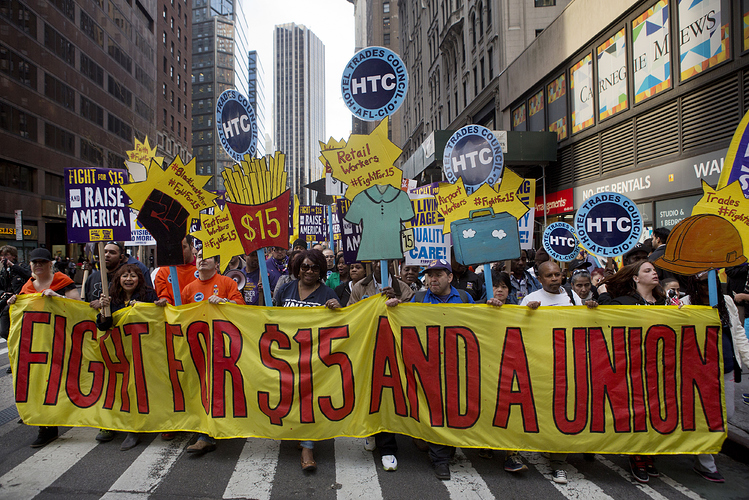In the newly released June issue of the Brooklyn Rail, Peter St. Clair reviews Class Matters: The Strange Career of an American Delusion by Steve Fraser. As St. Clair notes, Fraser’s book explores how openly acknowledging and discussing class in the US has long been taboo, even as the material reality of class has played an ever greater role in shaping people’s lives. At the same time, traditional class categories—working class, middle class, upper class—have been scrambled by changes to the capitalist economy under neoliberalism. All of this necessitates not a retreat from talking about class, but an updating and refining of the language we use to talk about it. Check out an excerpt from St. Clair’s review below, or the full text here.
However, capitalism is a revolutionary social formation forever undergoing change as new technologies, new businesses, alterations in the means of production, political upheaval, and economic crises affect how power and resistance to oppression play out on the world stage. While history provides us with the only laboratory we have to examine human social formation, it can inhibit our appreciation for new and unique situations and radically new conditions.
Humanity has reached this point of power over the world it inhabits not solely due to any special attributes of individual specimens, but because of the complexity of social organization that humans have attained. The success of the human species on the planet, and the human ability to discover deep secrets of the universe and our own place in it, is the result of our remarkable ability to form ourselves into a greater and greater social web in which the labor and mental power of all the world’s individuals are joined. We have evolved through the eons of life on earth and can trace our origins back in time through the cosmos to the origin of the universe. We are the consciousness, in this sense, of the universe itself, contemplating itself.
The irony in all of this is that the consciousness has been reached largely through the unconscious processes of capitalism, through laws of capitalist development that human knowledge, science, and technology have advanced thus far by merely following capital’s demands for profit and accumulation. The system has its limits and we seem to be witnessing the end of those limits now. The hope for humankind is that this unconscious process can be seized and brought under the control of conscious human planning and organization. It is through the effort of the workers of the world, who do the work and reproduce the social system itself, that this can happen. It is through the workers of the world realizing their common class interest that they can unite to end the social system that relies on class oppression to function, and found a new society free from classes.
Image: Protesters hold signs at a rally in support of minimum wage increase in New York, April 2015. Via Fortune.
